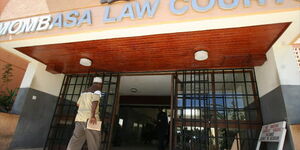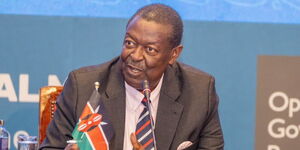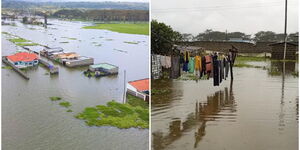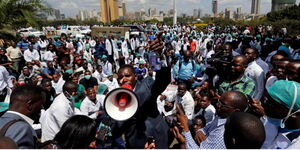What would you do if you woke up one day and suddenly found yourself unable to see?
This had been the fate of hundreds of Kenyans who contracted blindness before one man took it upon himself to change the seemingly bleak situation.
Thanks to the work of Samson Lokele, Turkana's first surgeon, Kenya is on track to eliminate trachoma, the leading infectious cause of world blindness in four years.
According to a feature by The Guardian on March 3, 2020, Lokele has been a practising physician for 10 years during which he has performed over 3,500 trachoma operations on members of his community in Turkana.
He has dedicated his career to traversing the desert and bush to care for the eyes of Turkana’s population which numbers 1.25 million people.
Turkana previously ranked as having the highest rates of trachoma infections before Lokele began his work but now has the lowest levels in the country.
According to the World Health Organisation (WHO), trachoma is caused by an infection termed bacterium chlamydia trachomatis. Blindness resulting from trachoma is irreversible. The disease is spread through personal contact, via hands, clothes or bedding or by flies that have been in contact with discharge from the eyes and nose of infected persons.
{"preview_thumbnail":"/files/styles/video_embed_wysiwyg_preview/public/video_thumbnails/bZxPnrD6omA.jpg?itok=BE4w5PUj","video_url":"https://www.youtube.com/watch?v=bZxPnrD6omA","settings":{"responsive":1,"width":"854","height":"480","autoplay":0},"settings_summary":["Embedded Video (Responsive)."]}
Inadequate access to water or facilities of sanitation as well as crowded households are some of the factors that contribute to the spread of the disease making the dry settlements of Turkana an ideal breeding ground for the infection to flourish
Lokele and his team sometimes offer to tend the cows of the predominantly pastoralist community to convince them to accept treatment. At other times they also serve the roles of mediators, brokering peace deals with rivalling to ensure members of both communities attend some of the pop-up surgeries that team organises.
The team that Lokele leads has grown significantly in the past ten years with eight surgeons, 16 ophthalmic nurses, three optometrists, 38 assistants and 250 health workers. The team is also assisted by over 2000 volunteers who navigate the land on motorbikes.
Ngurotin Lung'or, the only female volunteer in the area has faced considerable resistance in her efforts to identify those ailing and bring them to surgery, but she has remained undeterred in her efforts.
"My grandfather told us about trachoma, and the local way where they used herbs and scratched the patient’s eye as a form of treatment. This was making things worse and many people went blind. I put all my mind on learning about trachoma, so I’ll be able to educate my people and reduce their pain,” states Lung’or.
One of the other challenges that the team must surmount is the distance between the houses. This sometimes forces them to travel for hours to deliver the much-needed service to the locals. The secondary challenge that arises from this is the difficulty in getting the patients to proper facilities and often the teams have little alternative but to set up mobile theatres.
"As long as it is a clean place, it can be anywhere. We have operated under trees, in classrooms, schools, in a tent and in the bush," provides Lokele.
Trachoma can become increasingly painful for those who suffer from repeated infections. The inside of the eye sometimes becomes so severely scarred that it turns inwards. This causes the eyelashes to rub against the eyeball resulting in constant pain and light intolerance.
Amoni Ekaale, one of the beneficiaries of Lokele's work suffered through this before she went in for the surgery.
"Although I am not yet healed, I can see over there. I can see! Now that I have no pain, I am starting what I love doing most, sewing. For now, I want to rest but after a few days, I’m going to start sewing. I would encourage people to go for the surgery."
Where trachoma is endemic, WHO recommends the use of the SAFE strategy.
Surgery to treat the blinding stage.
Antibiotics to clear the infection.
Facial cleanliness and lastly,
Environmental improvement to increase access to water and other essential sanitation facilities.












